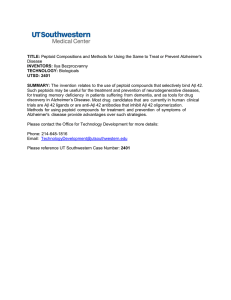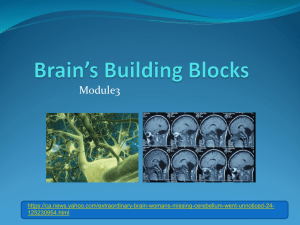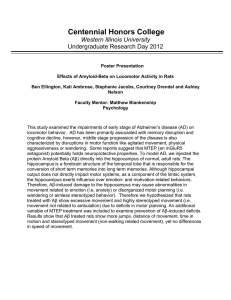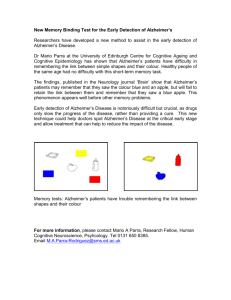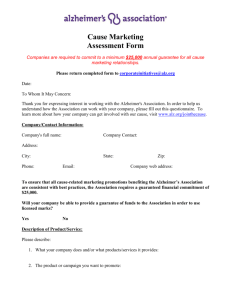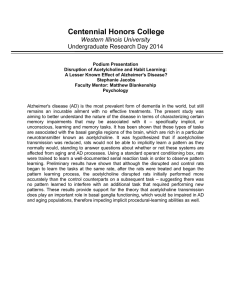Centennial Honors College Western Illinois University Undergraduate Research Day 2012
advertisement
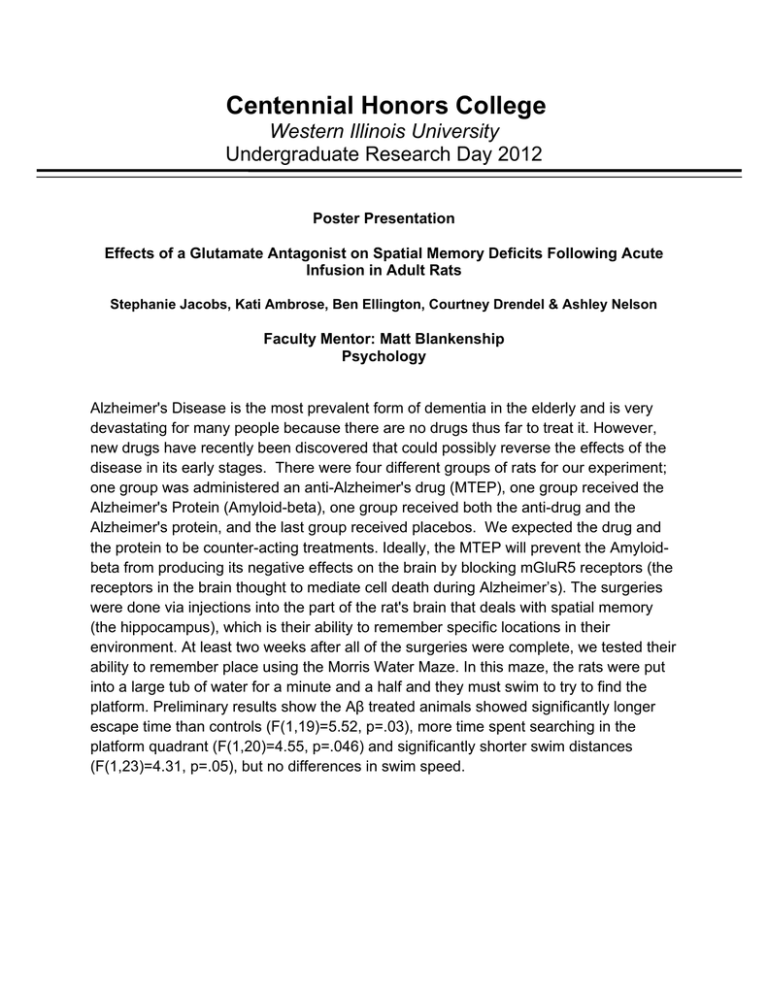
Centennial Honors College Western Illinois University Undergraduate Research Day 2012 Poster Presentation Effects of a Glutamate Antagonist on Spatial Memory Deficits Following Acute Infusion in Adult Rats Stephanie Jacobs, Kati Ambrose, Ben Ellington, Courtney Drendel & Ashley Nelson Faculty Mentor: Matt Blankenship Psychology Alzheimer's Disease is the most prevalent form of dementia in the elderly and is very devastating for many people because there are no drugs thus far to treat it. However, new drugs have recently been discovered that could possibly reverse the effects of the disease in its early stages. There were four different groups of rats for our experiment; one group was administered an anti-Alzheimer's drug (MTEP), one group received the Alzheimer's Protein (Amyloid-beta), one group received both the anti-drug and the Alzheimer's protein, and the last group received placebos. We expected the drug and the protein to be counter-acting treatments. Ideally, the MTEP will prevent the Amyloidbeta from producing its negative effects on the brain by blocking mGluR5 receptors (the receptors in the brain thought to mediate cell death during Alzheimer’s). The surgeries were done via injections into the part of the rat's brain that deals with spatial memory (the hippocampus), which is their ability to remember specific locations in their environment. At least two weeks after all of the surgeries were complete, we tested their ability to remember place using the Morris Water Maze. In this maze, the rats were put into a large tub of water for a minute and a half and they must swim to try to find the platform. Preliminary results show the Aβ treated animals showed significantly longer escape time than controls (F(1,19)=5.52, p=.03), more time spent searching in the platform quadrant (F(1,20)=4.55, p=.046) and significantly shorter swim distances (F(1,23)=4.31, p=.05), but no differences in swim speed.


